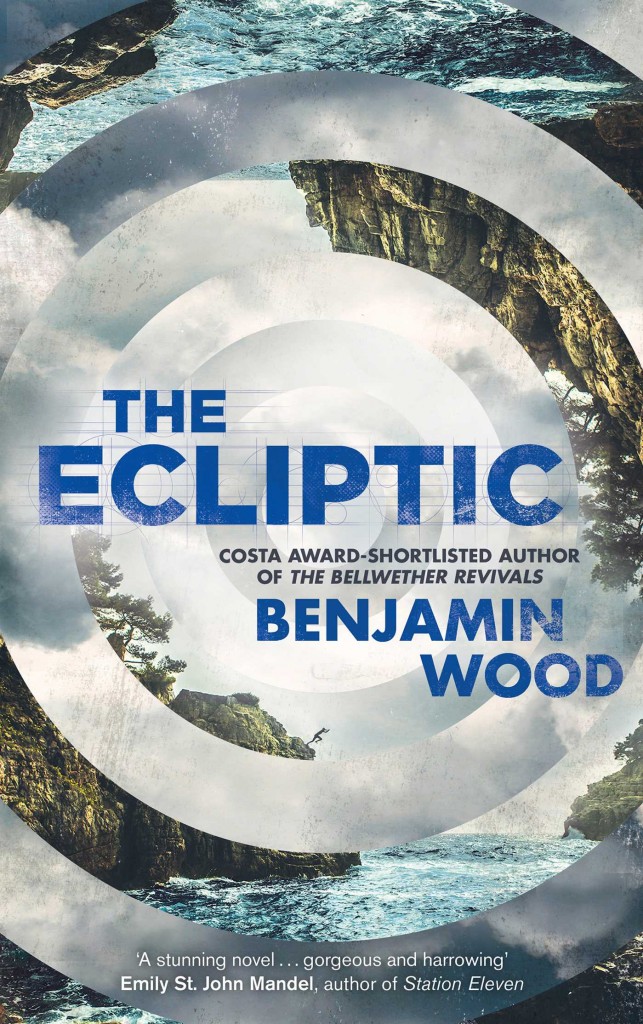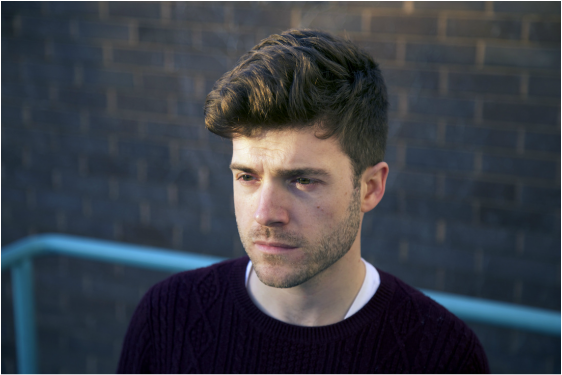This post was contributed by Andrew Youngson, media and publicity officer for Birkbeck, University of London
 In Benjamin Wood’s second novel, The Ecliptic, we delve into the story of Elspeth ‘Knell’ Conroy, a passionate, though somewhat lost, painter. Her desperate pursuit of truth and capturing it in her creations leads her to flee the commercialised 1970s London art scene. Refuge awaits off the coast of Istanbul in the form of Portmantle — the secret retreat on the island of Heybeliada which houses an eclectic group of creatives, from painters to architects and writers.
In Benjamin Wood’s second novel, The Ecliptic, we delve into the story of Elspeth ‘Knell’ Conroy, a passionate, though somewhat lost, painter. Her desperate pursuit of truth and capturing it in her creations leads her to flee the commercialised 1970s London art scene. Refuge awaits off the coast of Istanbul in the form of Portmantle — the secret retreat on the island of Heybeliada which houses an eclectic group of creatives, from painters to architects and writers.
Will Ellie reconnect with her muse? What exactly was she fleeing from? And is this Turkish haven really everything she thought it would be? All come to light in Benjamin’s book, a fascinating journey into the mind of a passionate artist and her quest for creative authenticity.
The frequently thrilling and consistently moving story was sparked by Benjamin’s own experiences in Istanbul during a three-month artist-in-residence cultural exchange programme which the 34-year-old, Southport-raised writer was selected for by the British Council. Set up with an apartment in Istanbul for the duration, he was handed a simple mission: explore.
Here, the senior lecturer in creative writing at Birkbeck’s Department of English and Humanities, discusses his Turkish adventure, crafting his novel, and the pursuit of authenticity in art.
Hi Benjamin. How was the Istanbul experience?
I was so absorbed by it. There’s something about the city itself — it’s a meeting place of continents, and it has an innate sense of history, but equally there’s a certain manner to the people there that I enjoyed. It was quite a levelling experience. I felt that there was a frenetic energy to the city, but also an astounding natural beauty. I could wander alone and feel quite a part of things even though it was a different culture from the one I grew up in. But actually, I don’t know if it was the people or the landscape that I found most inspiring. I think it was going back and forth from the mainland to the islands on the ferry that gave me the strongest connection to the place.
That’s where the idea for the book really came to mind, wasn’t it? What sparked it?
It was visiting the island, Heybeliada, and discovering that a Turkish author Hüseyin Rahmi Gürpınar had lived and worked there. That set my creative head spinning, wondering about the possibilities of how far I could extend this idea of a reclusive artist at work on the island, and how I could use the landscape to hypnotise the reader.
In the book you go into beautiful detail about the process of painting and creating art in general. I believe you went to art college for a while in your youth, but beyond that, what research was involved?
A mix of book learning, extrapolation and some imaginative projection, I suppose. A lot of the stuff about Ellie wandering around Paddington with her sketch book is something I do as a writer. If I’m looking to write about somewhere, I go there and try to memorise the scene and convey that in language — these are things a painter does, it’s just that my medium is different.
How did you come to flesh out the central character, Ellie?
I tend to read a lot of life stories of artists or creative people who I find inspiring. With this, I was reading about Alasdair Gray and Francis Bacon and John Craxton. I tried to find ways to appropriate elements of their lives and create a viable character of my own.
I try to build a character out of found materials and my own personal reflections, to mould them into something that’s believable and authentic — as authentic as fiction can be, anyway.
Ellie goes through some very dark times. Do your characters take you down a dark path personally when you’re writing them?
I tend to be drawn to characters that are solitary and autodidactic, and who feel both compelled towards the world they inhabit, but also repelled by that world too. My characters tend to be only children with few friends who have a very active interior life.
It does make you go to places you wouldn’t wish to go to in your own life, but when you imagine your character in situations like that, it’s one of the most affecting things you can do. You really feel like you’ve been there yourself and, even though you haven’t experienced that particular thing, somewhere you have access to the truth of what it feels like. I’m not saying there aren’t inconsistencies, but when you go into that inner darkness of the character, you realise that it exists in you as well.
Does it feel cathartic?
Yes, it’s saved me a ton in therapy. (Laughs) I’ve always been an aggressively creative person. I think it’s because I work out so much of my anguish that way.
Do you miss the characters once the book is finished?
I miss being in their headspace. It’s an odd thing, because they’re always with you, in a way, but equally you move on to the next project. It’s like being an actor going from one role to the next; you give up so much of yourself to get it on the page, but the character gives you so much in return. But you forget so much of them as soon as you send off the draft. You have to do that otherwise you would go completely mad.
There’s a flushing out process in between novels when you need a year — well, I need a year — to get over the last one and ruminate on the next one and find the right voice.
When doing her best work, Ellie becomes completely absorbed in her work and time seems to stand still. Do you crave those moments in your own writing?
Yes! You reach this plane of consciousness where you’re not aware you are writing and creating. You’re just in this…it’s like when you look at a heat shimmer on a hot day. It’s like that shimmer is all around you. Those moments come rarely, so when they come to you, you go until you are exhausted.
You know it’s been a great writing day when it’s 4pm and you haven’t eaten. You come out of it and suddenly you’re hungry, then you look back and you have written 5,000 words. Those days rarely come at the beginning, they tend to come at the end when everything is coalescing and words just seem to flow.
It’s a physical rapture that you feel when it’s going absolutely as well as it can. And those moments usually need the least amount of retouching afterwards. Because it’s like the tap has opened up and it’s clear water rushing out.
I’m writing my next novel. I’ve got the research behind me now, and I’m entering the writing stage. I’m in the foothills of the thing. Actually the thing that takes me the longest isn’t the writing; it’s all the formulation of the character and finding the voice. It takes a long time to find the right framework and the right voice to it all. Once I’ve got that, it gets much easier to commit the words to the page.
How do you find striking a balance between writing and your teaching work?
It can be exhausting but you learn to manage. I tend to be a ‘compartmentaliser’ anyway, so when I’m at Birkbeck I’m doing Birkbeck stuff, and the days which I’m allotted for research are my writing days and nothing really interrupts them.
I also find that I get into a bit of a funk when I’m not teaching and I’m solely working on a novel. Teaching keeps me in the real world, and gives me purpose beyond churning out a creative project. I find I bounce off the energy of this place.
I find teaching really rewarding. It allows me to think about my own craft continuously, to look at the work of great writers and see how their stories function. You’re teaching yourself as much as you’re teaching others.
The Ecliptic is available now in hardback and Kindle. His first novel, The Bellwether Revivals is also available across print and digital formats
Find out more



